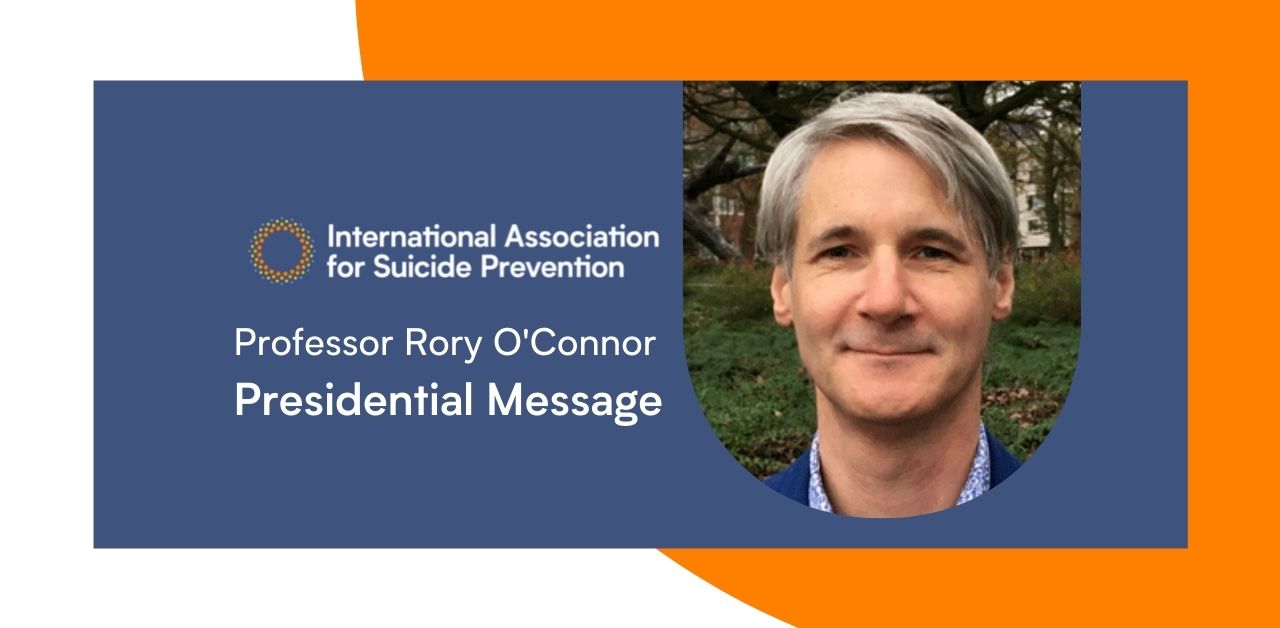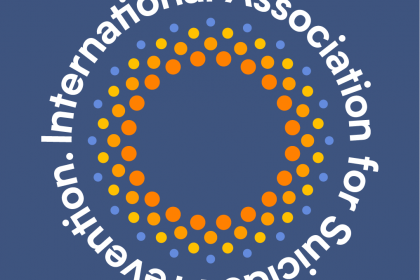As we move into the second half of 2021, I’d like to reflect on the progress we have made so far this year. The COVID-19 pandemic remains a significant threat, particularly with the emergence of new variants. However, the expedited implementation of vaccination programmes in some countries of the world offers protection against illness, but also, a real sense of hope for a future where this virus no longer controls our lives. I do however remain concerned about the (lack of) availability of vaccines in many low and middle-income countries. Although many challenges remain, we will continue to face them with strength and determination as we endeavour to overcome this global plight.
A key concern for our IASP community remains the potential impact of the pandemic and the associated restriction measures on public mental health and suicide rates. Recently, I was delighted to address the 300+ delegates of the 12th Triple i Conference, hosted in partnership with Slovene Centre for Suicide Research and the De Leo Fund Onlus, where we discussed the consequences of COVID-19 within an international context.
Thus far, there is evidence that research investigating the societal impacts of the current pandemic has been prioritised and this has facilitated a more timely public health response in some countries. Indeed, at the start of the pandemic, under the auspices of the Academy of Medical Sciences and the mental health research charity, MQ: Transforming Mental Health, I was part of the team who published a Position Paper with the aim of setting out immediate priorities and longer-term strategies for mental health science research in the context of COVID-19. This position paper, published in April 2020, emphasised urgency in accurately and appropriately monitoring the wellbeing and mental health of entire populations, as well as identifying vulnerable groups. It also highlighted the need for a step-change in funding for research in the area.
Also at the start of the pandemic, but with a specific focus on suicide prevention, David Gunnell led the establishment of the International Covid-19 Suicide Prevention Research Collaboration (ICSPRC). Its aim is to enhance good quality collaborative research on the prevention and management of suicide and suicidal behaviours in relation to the pandemic. Since its inception, ICSPRC has led several initiatives, including webinars, a commentary in Lancet Psychiatry, an editorial in Crisis, and a letter to academic journal editors highlighting the guidance on responsible reporting of research on COVID-19 and suicide. The ICSPRC has also established a COVID-19 suicide research study directory, updated weekly, which is a fantastic resource that I would encourage those working on COVID-19 related studies of suicide and suicidal behaviour to peruse.
Emerging trends in suicide rates have also been published. The initial research suggested that suicide rates in many countries either declined or remained unchanged in the short-term, but with the caveat that most early data has been from high income countries. In addition, studies from Japan looking beyond the immediate months have demonstrated adverse impacts on health and wellbeing in the autumn of 2020, particularly among the female population, as indicated by increased suicide rates, potentially due to increased caring responsibilities and the impact on certain economically hit careers. As alluded already, there is an urgent need for more surveillance statistics from low-middle income countries.
In terms of mental health and suicidal thoughts, initial outcomes from an ongoing UK-based mental health and wellbeing tracker study (that I lead) found higher than expected rates of symptoms of anxiety and depression during the initial six weeks of lockdown. However, the trajectory was noteworthy: during the initial six weeks, symptoms of anxiety decreased, depressive symptoms stayed about the same but suicidal thoughts increased. Interestingly, having access to outdoor space was a protective factor against suicidal ideation in the initial waves, which is something to bear in mind during possible future lockdowns. In subgroup analyses, consistent with other studies internationally, we found that young people, those whose employment status changed, and those from lower socio-economic backgrounds, were most affected, alongside those with pre-existing mental health conditions. These results are supplemented by a recent meta-analysis involving data from 300,000 individuals across 54 studies that reported increased suicidal ideation, suicide attempts and self-harm during the pandemic. Together, these findings highlight the importance of focusing efforts on at-risk subgroups, as it is becoming clearer that the pandemic has exacerbated existing inequalities in society.
We have come a long way since the disconcerting days of Spring 2020, but there is still a long way to go. The recovery will be bumpy. For now, we should reflect on what we have learned so far from conducting research during this turbulent time to inform improvements and ensure we are in the best position to help those who need it the most. Investment in infrastructure is critical to access high quality data in all countries. Rapid response is a key mechanism of effect but there are so many unanswered questions. For example, we don’t yet know the efficacy or consequences of delivering suicide prevention/mental health interventions remotely. We need to determine whether we are meeting the needs of those who are struggling and remember that there is no one size fits all, therefore engagement with those with lived and living experience is vital.
Finally, as we move through recovery, we must remain vigilant and implement social, economic and psychological safeguards to ensure those most affected are protected to minimise the adverse impact of the pandemic. We need to remain optimistic in the months ahead as governments, communities, organisations and individuals pull together to support those who are vulnerable and each other. And I am confident that, we, the IASP community will continue to play a vital role in providing evidence, practice and care throughout this crisis.
Prof. Rory O’ Connor
President, IASP





